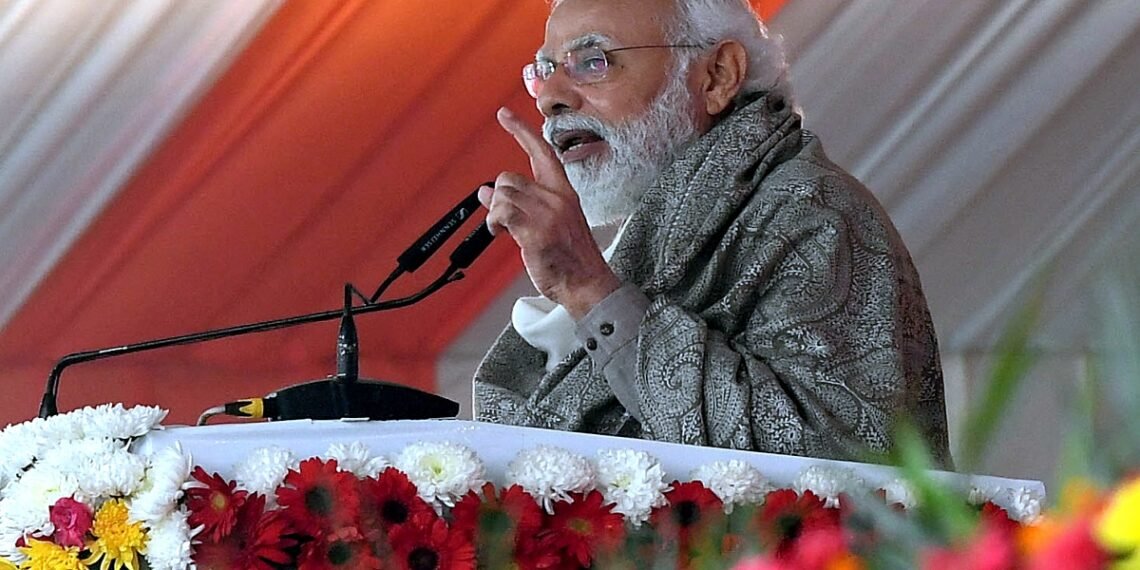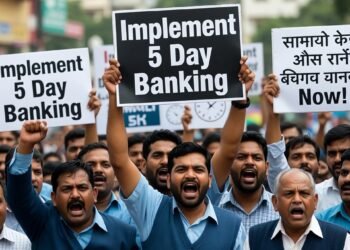From ghee and soaps to cars and appliances, GST cuts will reduce costs across daily essentials and big-ticket goods, giving consumers a major boost.
New Delhi, September 21: Prime Minister Narendra Modi on Sunday evening addressed the nation, hailing the latest round of Goods and Services Tax (GST) rationalisation as a “historic and people-centric reform” that will reduce the tax burden on households, boost industry, and help India move towards its vision of becoming a $5 trillion economy.
The Prime Minister described GST as not merely a tax change but a “social and economic transformation” that aims to bring fairness, uniformity, and transparency to India’s taxation system.
READ: White House Links H-1B Visas to Massive U.S. Job Losses
Relief for Households: Over 375 Items Cheaper
In his speech, Modi emphasised the impact of the GST reforms on everyday life. The government’s decision to slash rates across more than 375 items will directly benefit millions of households.
-
Daily essentials like butter, ghee, paneer, packaged milk, jams, sauces, soaps, toothpaste, and shampoos will become cheaper.
-
Household appliances and electronics such as air-conditioners, televisions, washing machines, and dishwashers will now carry lower tax rates.
-
Packaged drinking water brands, including Rail Neer, have reduced prices, offering tangible relief to consumers.
Modi noted that these measures would ease household budgets during the upcoming festive season. “This reform is for every family in India. From the poorest to the middle class, everyone will feel the difference,” he said.
Big Push for Industry and Jobs
The Prime Minister also linked the reforms to broader industrial growth. Automobiles—particularly small cars, hatchbacks, and certain SUVs—will become more affordable as GST rates on many models have been slashed from 28% to 18%.
Similarly, the reduction of GST on cement and construction materials from 28% to 18% is expected to cut housing costs and boost infrastructure development.
WATCH LIVE: Prime Minister Shri @narendramodi’s special address to the nation. https://t.co/eTH7U5jBAw
— BJP (@BJP4India) September 21, 2025
“When industries grow, when housing becomes affordable, when vehicles are cheaper, jobs are created and our economy becomes stronger. This is the virtuous cycle we are building through GST reforms,” Modi remarked.
Healthcare and Medicines
The rationalisation also touches on healthcare. Several life-saving drugs and diagnostic devices such as glucometers and test kits have been brought under lower tax slabs. Modi said this would make treatment more affordable and support the government’s vision of “Ayushman Bharat—healthcare for all.”
One Nation, One Tax
Modi took the opportunity to defend GST against critics who argue that it has complicated tax compliance. He maintained that GST has reduced corruption, streamlined logistics, and created a more level playing field for businesses across states.
“Before GST, there were multiple taxes, multiple checkpoints, and countless middlemen. Today, we have One Nation, One Tax. This has increased compliance, boosted revenue for states, and given confidence to investors,” he asserted.
The address comes just weeks before the festive season, when inflation and high prices are politically sensitive issues. By presenting the GST reform as a pro-people measure, the government aims to reassure citizens that it is responsive to household concerns.
Observers also note that this could have electoral significance ahead of upcoming state elections, with the Centre keen to showcase its ability to tackle inflation while driving growth.
Economists and industry leaders have welcomed the reforms. The Confederation of Indian Industry (CII) called the move “timely and growth-oriented”, predicting a boost in consumer demand and manufacturing output.
Retail associations said the lower tax burden on FMCG goods and appliances would encourage spending. Auto sector executives, meanwhile, expressed hope that reduced prices would revive car sales, which had been sluggish due to high financing costs.
However, some analysts cautioned that the real impact will depend on whether companies pass on the tax benefits fully to consumers. “GST cuts can boost sentiment, but inflationary pressures from fuel and global supply chains remain,” said an economist from a leading think-tank.
Concluding his address, Modi reiterated his government’s long-term vision:
“Our mission is simple—ease of living for every citizen and ease of doing business for every entrepreneur. GST reforms will take us closer to both goals, while ensuring India continues to march confidently on the path of Atmanirbhar Bharat.”
The GST rationalisation, which takes effect from September 22, is expected to influence household consumption, business investment, and even India’s GDP trajectory in the coming quarters. With global headwinds and inflation posing challenges, the government hopes that this major reform will give the economy the momentum it needs.












